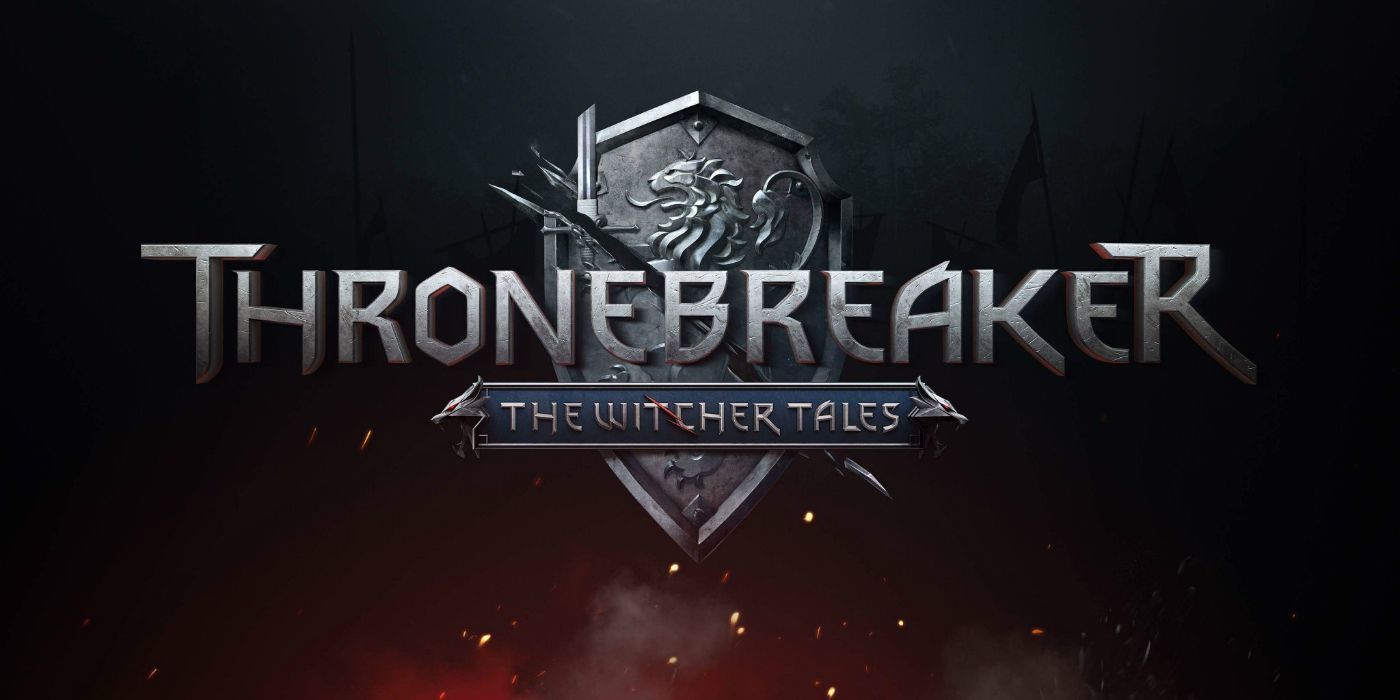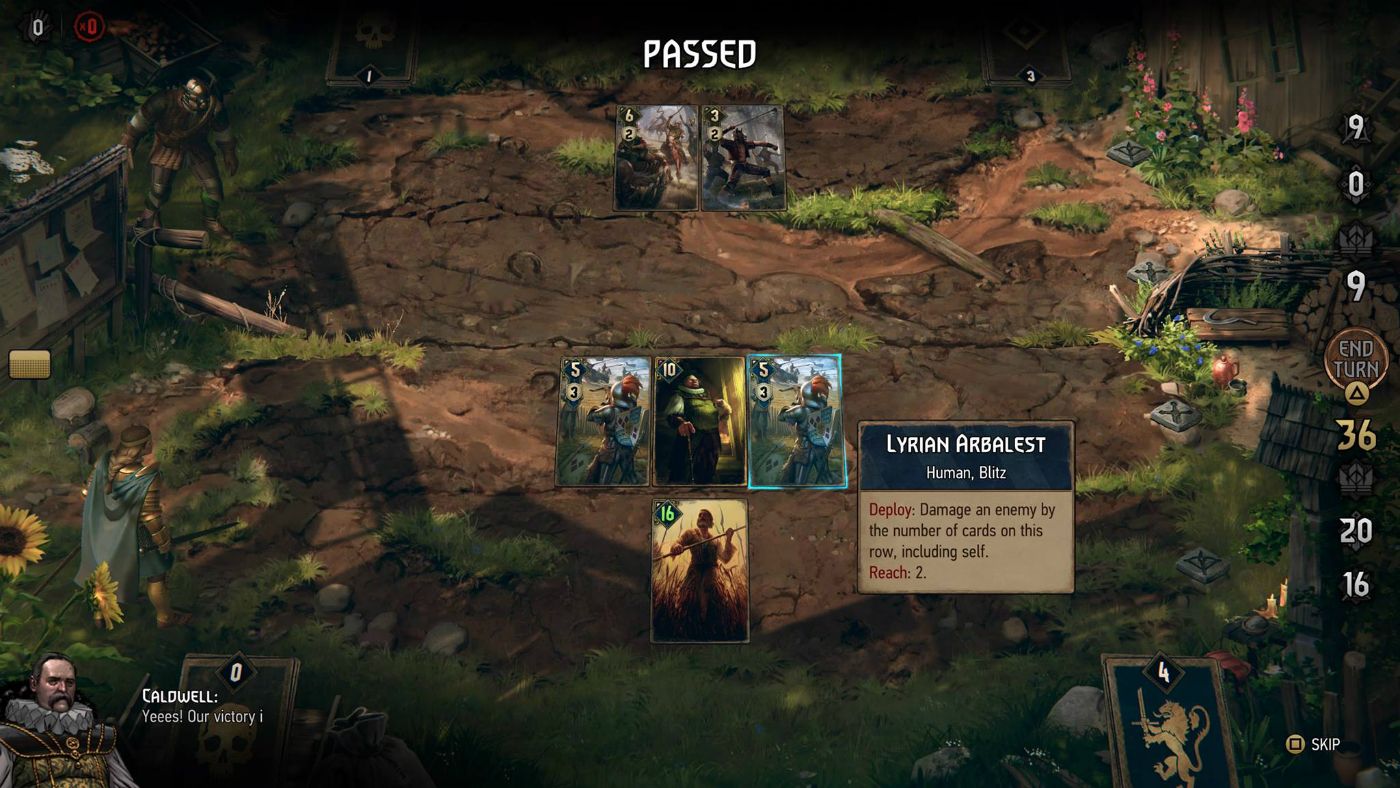
The Witcher universe has spawned a few of the most enduring ideals in video games at the moment. Geralt, the protagonist of CD Projekt Red's trilogy of Witcher RPGs, is beginning to appear in a multitude of different franchises, his name recognition making him well worth the addition. Gwent, the card game introduced in the third game of the trilogy, quickly took on a life of its own, as players lamented having put Geralt's journey on hold for dozens of hours so that they could play villagers for their cards. Gwent went on to become, well, Gwent, a stand-alone collectible card game with an online competitive scene and tournament support akin to other stalwarts of the genre like Magic: The Gathering and Hearthstone.
Thronebreaker: The Witcher Tales is a strange addition to CD Projekt Red's stable of Witcher games because it doesn't really pick a lane and stick to it. Sometimes, it is a traditional RPG, where choices matter and characters interact with each other to produce emotional attachment to the narrative. At other times, Thronebreaker is a Gwent port, offering mostly the same kind of experience players might find online. Still, at other moments, Thronebreaker is a puzzle title, attempting to stump its players with Gwent-based problems. Somehow, though, this smattering of mechanics and philosophies from different genres of games coalesces into what has to be the best variation of a Gwent game that CD Projekt Red has ever released.
Related: The Witcher Developers Hint At A New Game Without Geralt
Thronebreaker succeeds because at its heart, it is still a Witcher game, even (mostly) absent Geralt's musings about monster behavior or the folly of humanity. That's largely because Queen Meve, the protagonist, is just as layered and interesting as Geralt ever was. Throughout the game, Meve has to make incredibly difficult decisions, choosing to forgo her own personal pride for the sake of her followers or obliterating civil unrest with an iron fist. The decisions aren't always that simple, of course - in fact, they're rarely so black and white. Instead, Meve has to carefully navigate political pressures and treacherous waters on her journey to save Lyria and Rivia from the Nilfgaardian invasion. That the game is set as a prequel to the world players experienced in The Witcher series, and so those experienced with the narrative know some of what is going to happen here regardless, is rendered irrelevant by the deft storytelling at play.

Maintaining alliances is also crucial in the gameplay, too. The cast of supporting characters are more than just excellently written window-dressing; maintaining their happiness is key to having a good Gwent deck, since their hero cards are present when they are allied with Meve and will depart the deck as soon as they leave. These cards are the most powerful weapons the player will have access to in the game's battles and puzzles, so losing them feels like a double blow, both emotionally and mechanically.
The gameplay itself is sublime. Gwent is just as addictive as it was in its first iteration, only it has maintained the more complex rules introduced in the standalone variant CD Projekt Red released as its own game later. Building a deck is a matter of collecting resources through battle and map exploration, and there's a distinct variety in the way the cards are introduced and integrated that makes multiple philosophies possible. Want to grind games out? Go for it. Want to cheese an opponent with board state altering effects? By all means. It's refreshing, and eliminates the chief concern that people may have harbored about playing one faction in Thronebreaker when there are many available in Gwent.
It's also worth mentioning that the puzzles in Thronebreaker are beautifully designed. They're not very easy, even from the very start, and they only get more difficult, but along with that comes a rise in the amount of satisfaction players will feel when they finally solve them. They also reward some of the best cards and resources, so they never feel like a waste of time. Thronebreaker even integrates itself with the standalone Gwent title by offering cards found in the former to players of the latter for free. Simply finding a card, often out of the game's treasure chests, will add it to a players Gwent account.

Finally, the game itself is beautiful. The world feels hand-drawn and the maps are bustling with character. There's so much to like about Thronebreaker that it is easy to overlook its few flaws in its console iteration, most of which is caused by a bit of slowdown or lag when attempting to switch between the world map and the player's camp or other similarly large leaps in environment. The experience definitely seems better suited to a keyboard and mouse, too, as some of the controller-based input seems a little clunky, especially when it comes to navigating menus. Not a dealbreaker or even a big concern, but certainly something that could have been implemented much better.
Overall, Thronebreaker: The Witcher Tales is by far the best representation of Gwent that CD Projekt Red has developed so far, and a worthy adventure RPG that deserves your time even if you aren't the biggest fan of card games. Thronebreaker could be, and hopefully is, the beginning of another long and fruitful Witcher-based IP, because this is a game that achieves something special.
More: The Witcher Creator Seeks $16 Million in Royalties From CD Projekt Red
Thronebreaker: The Witcher Tales is available now on PS4, Xbox One, and PC. Screen Rant was provided with a PS4 code for the purposes of this review.
from ScreenRant - Feed https://ift.tt/2SzkqQ2



0 Comments